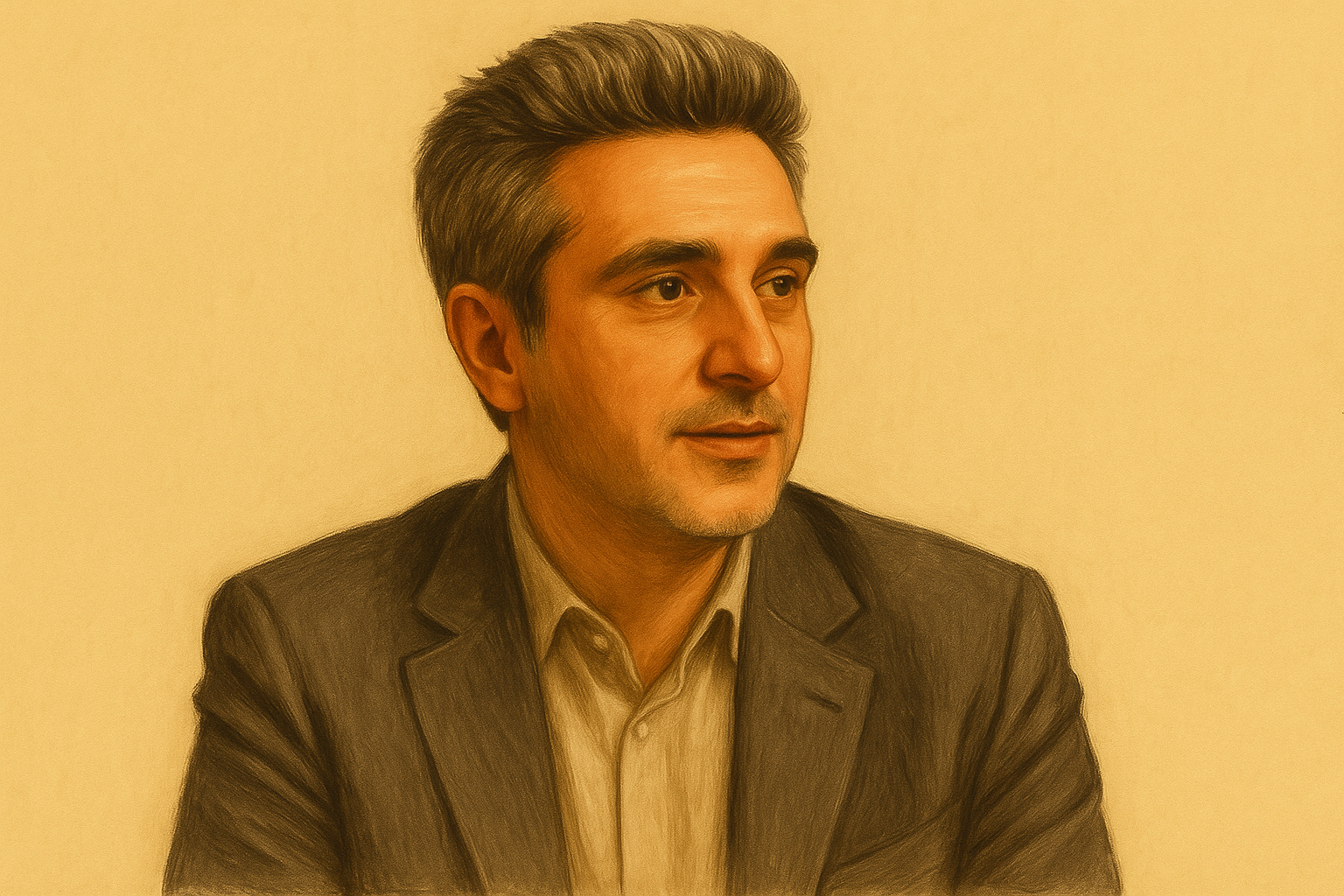
Meet Petrit Sarachini, the North Macedonian media veteran fighting fake news with facts that actually go viral. His dream superpower? To instantly spot a lie. He may already have it.
In the age of algorithm-driven truth and TikTok attention spans, fighting disinformation feels a bit like showing up to a drone war on horseback. Petrit Sarachini knows this. In fact, he said as much: "It’s like fighting nuclear bombs with swords and horses.” And yet, he keeps fighting.
Sarachini is the co-founder of IMA — the Institute for Media and Analytics — a civil society organization in North Macedonia waging war on misinformation, hate speech, and the digital fog that now blankets much of public discourse. He is not a technocrat or a disillusioned policy wonk. He is a musician, a media veteran, and, by his own admission, a reluctant warrior in the battle for truth.
His journey started under the shadow of autocracy. Around 2015, when North Macedonia was in the grip of then-Prime Minister Nikola Gruevski, Sarachini was working with the civil society organization CIVIL. "Most of the media was under strict control," he recalls. "Disinformation and attacks were everywhere. Anyone who opposed the ruling party was a target." That chaos, he says, was a catalyst.
Sarachini began to notice another layer of manipulation: narratives seeded by foreign interests, particularly from centers close to the Kremlin. These weren’t just local political smears; they were geopolitical scripts playing out on Balkan soil. The protests against Gruevski's regime were reframed by pro-Russian media as a color revolution orchestrated by the West. The Prespa Agreement, which ended a decades-long dispute with Greece and paved the way for NATO membership, was met with a torrent of anti-Western propaganda. The same happened with EU accession negotiations, the national census (due to country’s delicate multiethnic make up) and later even COVID-19 and the war in Ukraine. Different topics, same sources, same tactics.
"We saw that the same groups were behind all of it," Sarachini says. "They operate websites, push narratives through social media, and use coordinated networks to manipulate public opinion. It’s organized. It's intentional."
In 2022, he co-founded IMA with colleague Zharko Trajanoski, with start up funding from EED. IMA operates on two fronts: media monitoring and media production. It's a hybrid model. The team produces reports, public analyses, and investigations. But just as importantly, they translate those findings into formats that people will actually watch. "Short videos. Debunks. Social content," Sarachini explains. "People don’t read long articles anymore. If you want to reach them, you have to go where they are."
IMA's flagship project is a weekly TV show called Polygraph, co-produced with national broadcaster Alsat TV. It debunks viral disinformation with clarity and style. It quickly became one of the station's most-watched programs. Sarachini sees this as proof that the public wants to be informed — but they also need to be entertained.
"When professional media engage seriously in fighting disinformation, we can make a difference," he insists. "But right now, most of that work is left to small organizations like ours. That has to change."
Sarachini wants to mainstream the fight against disinformation. For him, it cannot remain a niche concern of NGOs and fact-checkers. He wants traditional media, influencers, even state institutions to recognize the scale of the threat. "This isn't just about lies," he says. "It's about democracy, about human rights, about whether citizens can make informed decisions."
IMA recently launched a new initiative to bring young influencers across the Western Balkans into the fight. They issued a public call for content creators aged 18 to 27, offering mentorship and collaboration opportunities. The idea is simple: if toxic narratives can go viral, so can truth — if packaged right.
But Saracini is not naive. He knows this is an asymmetric war. He knows that short, emotionally charged falsehoods will always outperform nuanced, fact-based analysis in the algorithmic marketplace. He knows that confirmation bias is a hell of a drug.
Still, he refuses cynicism. When asked if he has a personal hero, he cites not a politician or a media mogul, but Bob Marley. "He used his art for truth. For change. That’s what we should do in media, too. We shouldn't just be observers. We have to be activists."
As for a superpower? He doesn’t hesitate: "To know if someone is lying.” To be a human polygraph.
But perhaps his most telling answer comes when asked about unsung heroes. He pauses, thinks, and then says: "The ordinary citizen who speaks up. The one who refuses to stay silent. That’s the person we need to write about. That’s who this fight is for."
In a landscape overrun with noise, Petrit Sarachini is betting on clarity. On curiosity. On courage. And most of all, on the belief that truth — if made accessible, if made loud enough — still stands a chance.
This article reflects the views of the grantees featured and does not necessarily represent the official opinion of the EED.